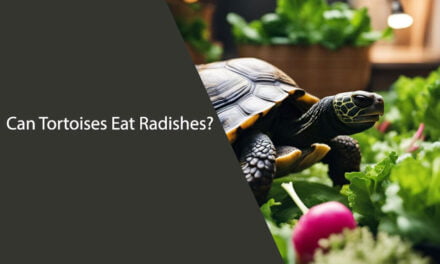Guinea pigs are adorable creatures that make great pets. As a responsible pet owner, it’s important to ensure that your furry friend is getting a balanced diet that meets all their nutritional needs. While guinea pigs can eat a variety of fruits, vegetables, and hay, it’s natural to wonder if they can eat human foods like Ritz crackers.

Ritz crackers are a popular snack that many people enjoy. However, just because we can eat them doesn’t necessarily mean that they’re safe for guinea pigs to consume. As herbivores, guinea pigs have specific dietary requirements that need to be met in order for them to stay healthy. It’s important to know what foods are safe for your pet to eat and what foods to avoid.
Table of Contents
What Are Ritz Crackers?
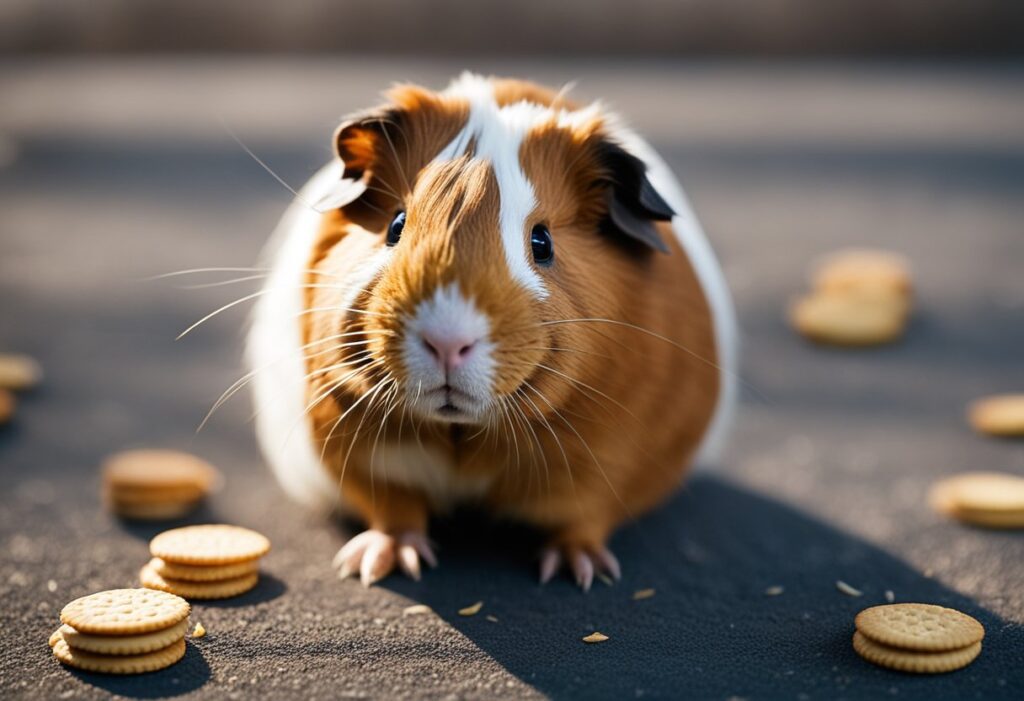
Ritz crackers are a type of snack cracker that is made by Nabisco, a subsidiary of Mondelēz International. These crackers are round and have a slightly salty taste. They are made from wheat flour, vegetable oil, sugar, and salt, among other ingredients.
Ritz crackers are a popular snack food in many households. They can be eaten on their own or used as a base for other snacks, such as cheese and crackers or peanut butter and crackers. They are also a common ingredient in recipes for casseroles and other dishes.
Ritz crackers come in a variety of flavors, including original, whole wheat, and reduced fat. They are also available in different shapes and sizes, such as mini Ritz crackers and Ritz Bits.
It is important to note that Ritz crackers are a processed food and should be consumed in moderation as part of a balanced diet. While they may be a tasty snack, they are not a substitute for nutritious foods such as fruits, vegetables, and whole grains.
Guinea Pigs’ Diet: A General Overview
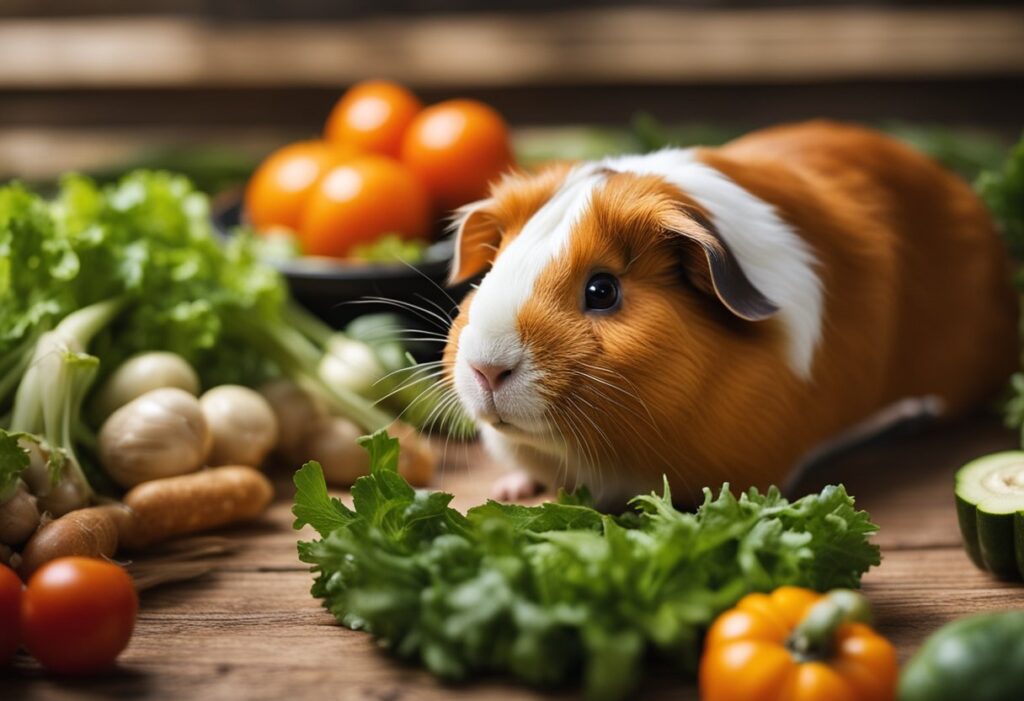
As responsible guinea pig owners, we must ensure that our furry friends are getting the right nutrition to keep them healthy and happy. A guinea pig’s diet should consist of hay, fresh vegetables, and a small amount of pellets.
Hay is essential for a guinea pig’s digestive health and should be available to them at all times. Timothy hay is the most commonly recommended type of hay for guinea pigs, as it is low in calcium and high in fiber.
Fresh vegetables should make up a significant portion of a guinea pig’s diet. Leafy greens such as kale, spinach, and lettuce are great options, as well as bell peppers, carrots, and cucumbers. It’s important to introduce new vegetables slowly to avoid upsetting their digestive system.
Pellets should only make up a small portion of a guinea pig’s diet, as they can be high in calories and low in fiber. Look for pellets that are specifically formulated for guinea pigs and avoid those that contain seeds, nuts, or dried fruit.
In addition to hay, vegetables, and pellets, guinea pigs also enjoy occasional treats. However, it’s important to choose treats that are safe for them to eat. Foods that are high in sugar, salt, or fat should be avoided, as well as any foods that are toxic to guinea pigs.
In conclusion, a balanced diet is crucial to a guinea pig’s health. Providing them with a variety of hay, vegetables, and pellets, as well as occasional treats, will ensure that they are getting the nutrition they need to thrive.
Can Guinea Pigs Eat Ritz Crackers?

As responsible pet owners, we always want to make sure that our furry friends are getting the right nutrition. Guinea pigs need a diet that is high in fiber, vitamin C, and low in fat. While it may be tempting to give your guinea pig a treat like Ritz crackers, it’s important to know whether or not it’s safe for them to eat.
Ritz crackers are made with enriched flour, vegetable oil, sugar, and other ingredients that are not a part of a guinea pig’s natural diet. These crackers are also high in sodium, which can be harmful to guinea pigs if consumed in large amounts.
Additionally, Ritz crackers do not provide any nutritional value to guinea pigs and can lead to weight gain and other health problems. It’s best to stick to feeding your guinea pig hay, fresh vegetables, and fruits that are safe for them to eat.
In conclusion, it’s not recommended to feed Ritz crackers to your guinea pig. Stick to their natural diet and provide them with treats that are healthy and safe for them to consume.
Potential Health Risks
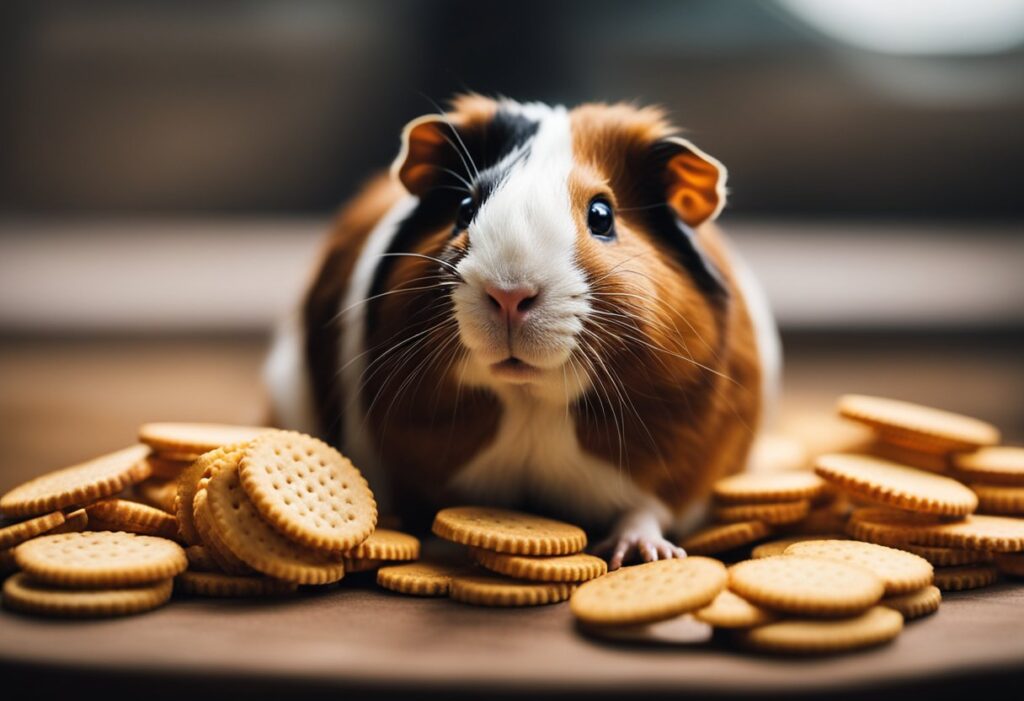
As we mentioned earlier, Ritz crackers do not provide any nutritional value to guinea pigs. In fact, they can be harmful to their health if fed in large quantities or on a regular basis.
The main concern with feeding Ritz crackers to guinea pigs is their high salt content. Too much salt can lead to dehydration, kidney problems, and other health issues. Additionally, the high fat content in Ritz crackers can cause digestive problems and lead to obesity.
It’s important to note that guinea pigs have sensitive digestive systems and are prone to developing gastrointestinal problems. Feeding them foods that are not part of their natural diet can upset their stomach and cause diarrhea or other digestive issues.
In summary, while guinea pigs may enjoy the taste of Ritz crackers, it’s best to avoid feeding them to your furry friends. Instead, opt for a balanced diet that includes hay, fresh vegetables, and a small amount of pellets. If you’re unsure about what foods are safe for your guinea pig, consult with a veterinarian who specializes in small animals.
Alternative Snacks for Guinea Pigs
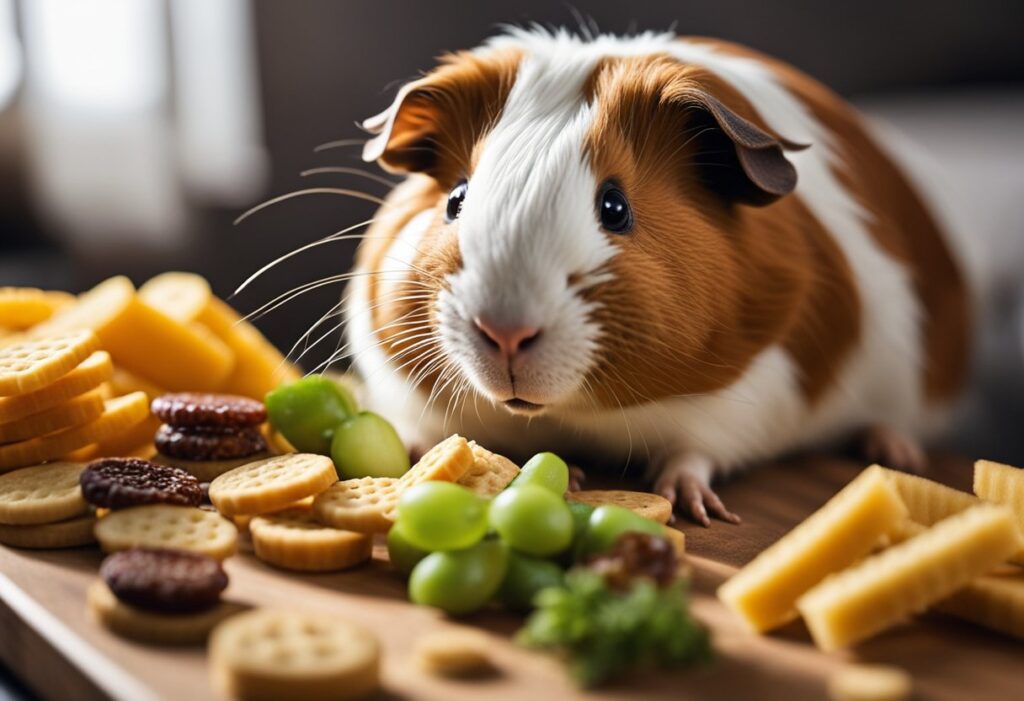
While it’s tempting to give our guinea pigs human snacks, like Ritz crackers, it’s important to remember that their digestive systems are different from ours. It’s best to stick to snacks that are specifically formulated for guinea pigs or fresh fruits and veggies.
Here are some alternative snacks that are safe and healthy for your furry friend:
Fresh Fruits and Vegetables
Guinea pigs love fresh fruits and veggies, and they’re a great source of vitamins and minerals. Some safe options include:
- Carrots
- Bell peppers
- Cucumber
- Broccoli
- Spinach
- Apples
- Blueberries
- Strawberries
Remember to wash all fruits and veggies thoroughly before giving them to your guinea pig.
Hay
Hay is an essential part of a guinea pig’s diet, but it can also be a great snack. It helps keep their teeth healthy and provides them with fiber. Timothy hay is a popular choice, but you can also try orchard grass or meadow hay.
Pellets
Guinea pig pellets are specifically formulated to meet their nutritional needs. They’re a great snack option, but be sure to check the ingredients and choose a brand that doesn’t contain any harmful additives.
Herbs
Many herbs are safe for guinea pigs and can be a tasty snack. Some options include:
- Parsley
- Basil
- Mint
- Cilantro
Remember to introduce new foods slowly and in small amounts to avoid upsetting your guinea pig’s stomach. And always make sure they have access to fresh water.
Consulting with a Veterinarian
When it comes to feeding our beloved pets, it’s always best to consult with a veterinarian to ensure their health and safety. This is especially important when considering feeding our guinea pigs human food, such as Ritz crackers.
While Ritz crackers may seem harmless, it’s important to consider the nutritional content and potential risks for our guinea pigs. Consulting with a veterinarian can help us make an informed decision and avoid any potential health issues.
During a consultation, a veterinarian can provide us with information on the nutritional needs of guinea pigs and whether Ritz crackers can provide any benefits or pose any risks. They can also advise us on appropriate portion sizes and frequency of feeding.
Additionally, a veterinarian can help us identify any potential allergies or sensitivities our guinea pigs may have to certain foods, including Ritz crackers. They can also provide guidance on what to do in case of any adverse reactions.
Overall, consulting with a veterinarian is a crucial step in ensuring the health and well-being of our guinea pigs. We should always seek their advice before introducing any new foods to their diet, including Ritz crackers.
Frequently Asked Questions
What human snacks are safe for guinea pigs to eat?
Guinea pigs have a sensitive digestive system and are prone to obesity, so it’s important to be careful about what you feed them. Some safe human snacks for guinea pigs include small pieces of fresh fruits and vegetables like apples, carrots, and cucumbers. However, it’s important to avoid giving them any processed or sugary snacks.
Can guinea pigs eat cheese?
While cheese is not toxic to guinea pigs, it’s not recommended to feed it to them regularly. Cheese is high in fat and can cause digestive issues for guinea pigs, so it should only be given as an occasional treat in small amounts.
Is it safe to feed guinea pigs Ritz crackers?
Ritz crackers are not toxic to guinea pigs, but they are not recommended as a regular part of their diet. Ritz crackers are high in salt and processed ingredients, which can cause health issues for guinea pigs if consumed in large amounts.
What fruits and vegetables can guinea pigs eat?
Guinea pigs should have a diet that consists mainly of hay, fresh vegetables, and a small amount of fresh fruit. Some safe vegetables for guinea pigs include carrots, bell peppers, and leafy greens like kale and spinach. Safe fruits for guinea pigs include apples, strawberries, and blueberries.
Can guinea pigs eat bread?
Bread is not toxic to guinea pigs, but it’s not recommended to feed it to them regularly. Bread is high in carbohydrates and can cause digestive issues for guinea pigs, so it should only be given as an occasional treat in small amounts.
Can guinea pigs eat peanut butter?
Peanut butter is not toxic to guinea pigs, but it’s not recommended to feed it to them regularly. Peanut butter is high in fat and can cause digestive issues for guinea pigs, so it should only be given as an occasional treat in small amounts.



